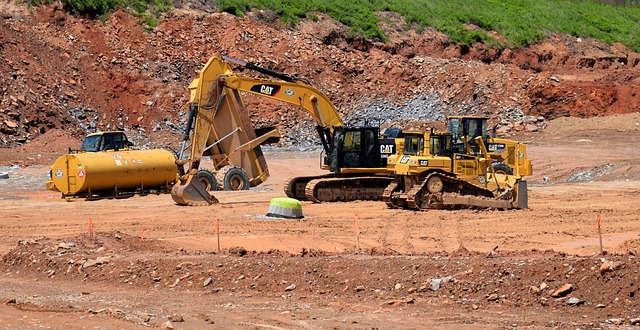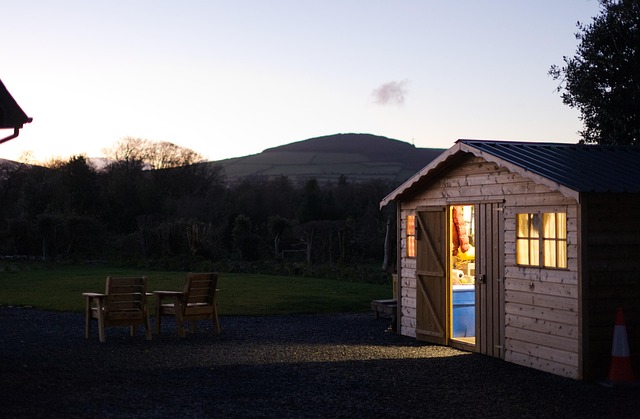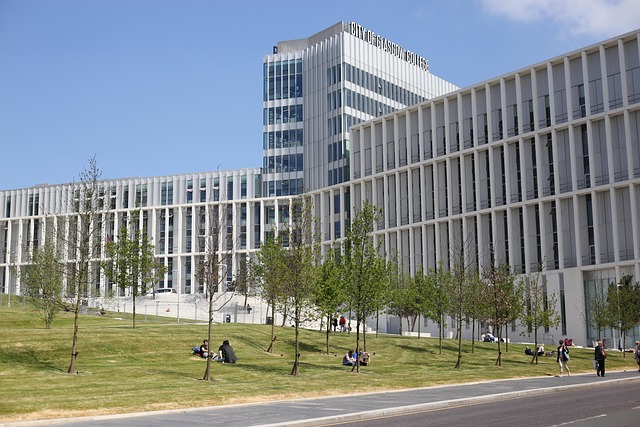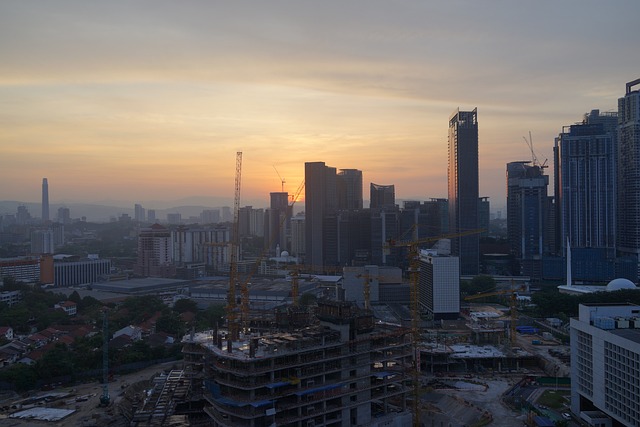Tired of the endless lawn care chores? Let our LaSalle/Essex County landscapers transform your outdo…….
Category: Landscaping Company Windsor
Award-winning landscaping company serving Windsor, LaSalle, and Essex County since 1990. Offers comprehensive property maintenance services including landscape design and construction, grass cutting, snow removal, decks and fences, Christmas decorating, and commercial landscape management for both residential and commercial properties.
Landscaping Company Windsor: A Comprehensive Analysis
Introduction
Welcome to an in-depth exploration of the dynamic world of landscaping, specifically focusing on the renowned Landscaping Company Windsor. This article aims to guide readers through the intricate aspects that define this industry, its global reach, and its profound impact on urban and natural environments. By delving into various facets, from historical foundations to cutting-edge technologies, we will uncover the significance of Windsor in shaping landscapes worldwide.
Understanding Landscaping Company Windsor: Definition and Core Components
Definition:
Landscaping Company Windsor refers to a specialized business that offers comprehensive services related to designing, installing, and maintaining outdoor spaces. These services encompass a wide range, from creating aesthetically pleasing gardens and parks to constructing complex commercial landscapes and infrastructure projects.
Core Components:
- Design: This involves conceptualizing and planning landscapes, considering factors like aesthetics, functionality, and client preferences. Architects and designers utilize tools such as CAD software, 3D modeling, and landscape architecture principles to create detailed plans.
- Installation: The physical process of transforming design concepts into reality involves planting, hardscaping (construction of retaining walls, patios, etc.), irrigation systems installation, and landscaping materials placement.
- Maintenance: Regular upkeep ensures landscapes remain vibrant and functional. This includes lawn care, pruning, seasonal plant maintenance, and snow removal in colder regions.
- Specialized Services: Some companies offer niche services like water feature design and construction, outdoor lighting design, or sustainable landscape practices.
Historical Context
The roots of modern landscaping can be traced back to the 19th century when the Industrial Revolution brought about significant changes in urban planning. As cities expanded, there was a growing need for structured, aesthetically pleasing green spaces. This era saw the emergence of influential landscape architects like Frederick Law Olmsted, who designed iconic parks such as Central Park in New York City.
In the mid-20th century, landscaping evolved to incorporate more complex designs and materials, reflecting the increasing sophistication of society. The post-war period also witnessed the rise of suburban development, leading to a surge in residential landscaping services. Over time, technological advancements have played a pivotal role in enhancing efficiency, safety, and sustainability within the industry.
Global Impact and Trends
Landscaping Company Windsor has left an indelible mark on the global landscape (pun intended), with its influence extending across continents:
- North America: The United States and Canada have long been at the forefront of innovative landscaping practices. Companies here often specialize in creating sustainable, eco-friendly spaces, incorporating native plants and water conservation techniques.
- Europe: European landscapes showcase a diverse range of styles, from traditional formal gardens to contemporary designs. The UK, for instance, is renowned for its lush parks and garden design heritage.
- Asia: Rapid urbanization has led to increased demand for professional landscaping in Asia’s bustling cities. Japan’s unique ‘karesansui’ (dry landscape) gardening reflects cultural aesthetics, while countries like India embrace vibrant, colorful floral displays.
- Middle East: The region’s warm climate presents unique challenges and opportunities for landscaping. Water features, desert-adapted plants, and innovative irrigation systems are common sights in cities like Dubai.
Trends Shaping the Industry:
- Sustainability: A growing global focus on environmental conservation has led to a rise in eco-conscious landscaping practices. This includes using native vegetation, implementing water-efficient systems, and adopting sustainable building materials.
- Technology Integration: Advanced technologies like GPS mapping, 3D modeling software, and remote monitoring sensors are revolutionizing landscape design and management.
- Urban Greening: There is a growing trend to incorporate green spaces into urban environments, leading to the development of vertical gardens, rooftop landscapes, and urban forests.
- Customized Designs: Landscaping companies are increasingly catering to clients’ unique preferences, creating personalized outdoor retreats that reflect their personalities and lifestyles.
Economic Considerations
Market Dynamics:
The landscaping industry is a significant contributor to global economic activity, with its value estimated at over $100 billion in 2022. This market is highly seasonal, with peak demand during spring and summer months when weather conditions are favorable for outdoor work.
Investment Patterns:
- Commercial Projects: Large-scale commercial landscaping often involves extensive planning and design, requiring substantial initial investments. These projects typically yield long-term returns through improved property values and enhanced curb appeal.
- Residential Sector: The residential market is highly diverse, catering to a range of budgets. Homeowners often invest in landscaping as a way to increase property value and create comfortable outdoor living spaces.
- Public Sector: Governments allocate funds for urban greening initiatives, park development, and maintenance, contributing significantly to the industry’s growth.
Economic Impact:
- Job Creation: Landscaping companies directly employ thousands of workers globally, including designers, installers, gardeners, and support staff. Indirectly, they also support industries related to plant supply, equipment rental, and outdoor furniture manufacturing.
- Revenue Generation: According to industry reports, the average landscaping project in North America generates between $5000 and $15,000, with high-end residential and commercial projects reaching even higher values.
- Economic Multiplicator Effect: Every dollar spent on landscaping services can have a ripple effect, stimulating local economies through various related industries.
Technological Advancements
Technological innovations have revolutionized the Landscaping Company Windsor landscape (pun intended again), enhancing efficiency, precision, and sustainability:
- CAD Software: Computer-Aided Design tools allow designers to create detailed digital plans, facilitating better visualization and communication with clients.
- 3D Modeling: This technology brings landscapes to life, enabling clients to see their future outdoor spaces in a three-dimensional format. It aids in identifying potential issues and making informed design choices.
- GPS Mapping: GPS systems provide accurate site measurements, helping designers create precise plans and ensuring efficient material ordering.
- Remote Monitoring Sensors: These sensors can detect moisture levels, temperature, and light conditions, optimizing irrigation systems and reducing water wastage.
- Drones: Aerial drones are used for site surveys, allowing for quick assessments of large areas and providing bird’s-eye views for design reference.
- Smart Irrigation Systems: Automated, weather-responsive irrigation controls ensure plants receive the right amount of water, promoting healthier growth and reducing waste.
- Eco-Friendly Equipment: Electric and battery-powered tools offer cleaner, quieter alternatives to traditional gas-powered equipment, reducing environmental impact.
Policy and Regulation
The landscaping industry operates within a framework of laws and regulations that vary by region:
- Building Codes: Local building codes often dictate landscape design and construction practices, ensuring structures meet safety and structural integrity standards.
- Environmental Regulations: Many countries have strict rules regarding water usage, waste management, and the use of certain chemicals in landscaping. These regulations aim to protect natural resources and ecosystems.
- Permitting Requirements: Landscaping projects may require permits for specific activities like construction, tree removal, or the use of certain controlled substances.
- Industry Standards: Organizations like the Landscape Architecture Foundation (LAF) set industry standards and guidelines promoting professional practices and client protection.
- Health and Safety: Regulations related to worker safety are crucial, especially when dealing with heavy equipment and potentially hazardous materials.
Challenges and Criticisms
Despite its successes, the Landscaping Company Windsor sector faces several challenges:
- Seasonality: The industry’s reliance on seasonal demand can lead to fluctuating revenue streams and workforce needs. This seasonal nature may cause strain on businesses during slow periods.
- Labor Shortages: Skilled labor is in high demand, and finding and retaining qualified employees can be challenging, especially in regions with harsher climates.
- Environmental Concerns: Overwatering and the use of toxic chemicals have raised environmental eyebrows. Landscapers must balance aesthetics with sustainability to address these concerns.
- Client Expectations: Meeting client expectations for both design quality and timely completion can be demanding, especially for complex projects.
Actionable Solutions:
- Diversify service offerings to cater to year-round demand.
- Invest in training programs to enhance employee skills and retention.
- Adopt sustainable practices and educate clients on their benefits.
- Implement project management strategies to improve efficiency and client satisfaction.
Case Studies: Successful Applications
1. Urban Park Revitalization (New York City, USA)
A leading landscaping company was hired to revitalize a historic urban park suffering from neglect. Through a comprehensive design process involving community input, they created a vibrant green space with diverse vegetation, interactive water features, and modern play areas. The project not only enhanced the park’s aesthetics but also increased visitor engagement, promoting social interaction and physical activity.
2. Sustainable Campus Development (Toronto, Canada)
A university commissioned a Windsor-style landscaping firm to design its new campus, focusing on sustainability. The company incorporated native plant species, implemented rain gardens, and installed a geothermal heating and cooling system for the buildings. This approach reduced the institution’s carbon footprint while creating a beautiful, eco-conscious learning environment.
3. Residential Estate Landscaping (Sydney, Australia)
A high-end landscaping firm transformed a sprawling coastal estate into a tropical paradise. Using local native plants and organic materials, they crafted outdoor living spaces that seamlessly blended with the natural surroundings. The project received accolades for its exceptional design, showcasing the potential of Windsor-style landscaping in creating luxurious outdoor retreats.
Future Prospects: Trends and Strategic Considerations
The future of Landscaping Company Windsor looks promising, with several emerging trends shaping the industry:
- Sustainable Practices: As environmental awareness grows, sustainable landscaping will remain a key focus. Companies that embrace eco-friendly techniques and materials will be well-positioned for success.
- Technology Integration: AI-powered design tools, augmented reality (AR) for client visualization, and smart home integration for landscape control are potential areas of innovation.
- Specialized Niche Services: As landscapes become more complex, specialized services like vertical gardening, aquascaping (water feature design), and sustainable urban farming will gain traction.
- Remote Management: Cloud-based management systems could enable remote monitoring and control of irrigation, lighting, and other landscape features.
- Collaboration with Architects: Closer collaboration between landscape architects and building designers will lead to more seamless outdoor-indoor spaces.
- Focus on Accessibility: Designing inclusive landscapes that cater to diverse abilities will be essential for public spaces.
Conclusion: A Dynamic Industry Shaping Our World
Landscaping Company Windsor is a dynamic, ever-evolving industry that plays a pivotal role in shaping our built and natural environments. From creating stunning urban parks to transforming residential backyards into oases, the impact of these companies is far-reaching. As technology advances and environmental considerations gain prominence, the future looks bright for this sector.
By embracing sustainability, innovation, and staying attuned to client needs, Landscaping Company Windsor professionals can continue to enhance our lives, both indoors and out. This article has provided a comprehensive overview, but the exploration of this fascinating industry is far from over.
FAQ Section: Addressing Common Concerns
Q1: How do I choose the right landscaping company for my project?
A: Consider factors like experience, portfolio, client reviews, and their approach to sustainability. Request detailed proposals and ensure they understand your vision.
Q2: Can landscaping be eco-friendly? How?
A: Absolutely! Eco-friendly landscaping involves using native plants, water-efficient systems, organic materials, and avoiding toxic chemicals. It promotes biodiversity and reduces environmental impact.
Q3: What are some common maintenance tasks for landscapes?
A: Maintenance includes lawn care (mowing, fertilizing), pruning, weeding, irrigation system checks, leaf removal in autumn, and seasonal plant care to ensure vibrant landscapes year-round.
Q4: How can technology improve my outdoor space?
A: Technology offers benefits like GPS mapping for accurate site planning, 3D modeling for visualization, smart irrigation systems for efficient water use, and remote monitoring sensors for optimal landscape management.
Q5: Are there any regulations I should be aware of for landscaping projects?
A: Yes, local building codes, environmental regulations, and permitting requirements vary by region. It’s essential to understand these rules to ensure your project complies with legal standards.
Save Money Year-Round: Top LaSalle/Essex County Landscapers at Your Doorstep
Elevate your outdoor space in LaSalle or Essex County with LaSalle Essex County Landscapers –…….
Transform Your Yard, Save Big: LaSalle’s Top Essex County Landscapers Offer Free Consults
Elevate your Windsor property into a vibrant oasis all year round with the help of LaSalle Essex Cou…….
Garlatti Landscape: Transform Your Yard with Frugal Deck Fences – Free Design!
Transform your outdoor space with Garlatti Landscape, the premier choice for deck construction and f…….
Top-Rated Landscapers Windsor Ontario: Save Time & Money – Freshen Your Yard Today!
Transform your outdoor space into a breathtaking landscape with Landscapers Windsor Ontario. Say goo…….
Transform Your Lawn: Effortless, Affordable Cutting by Garlatti Landscape
Tired of struggling to keep your yard looking its best? Garlatti Landscape is here to rescue you fro…….
Transform Your Yard in Windsor: Save Money with Top LaSalle Landscapers
Elevate your outdoor experience in LaSalle, Essex County with the expertise of LaSalle Essex County…….
Transform Properties with Garlatti’s New Landscape Management – Save Money, Gain Time!
Elevate your property with Garlatti Landscape, the trusted partner for enhancing outdoor spaces in W…….
LaSalle & Essex County’s Top-Rated Landscapers: Fresh Look, Less Stress, Free Quote!
Tired of spending your weekends maintaining your lawn? Let LaSalle Essex County Landscapers take car…….
Elevate Your Outdoors, Save Big: Free Design from Windsor’s Top Landscaping Company!
Transform your outdoor space into a stunning, functional area with a trusted Landscaping Company Win…….










